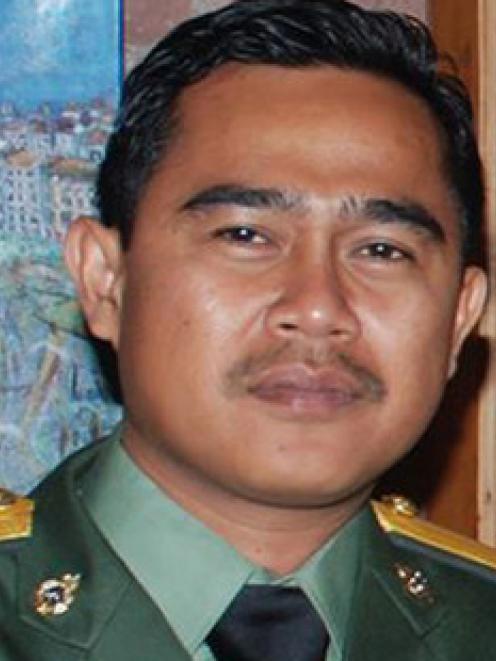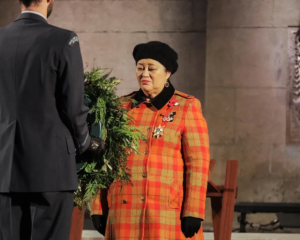
The diplomat at the centre of the allegations was identified yesterday as Muhammed Rizalman bin Ismail, a 38-year-old junior military official with three children, who had worked at the Malaysian High Commission in Wellington since October.
The Herald and other news organisations successfully appealed in the High Court at Wellington to have a suppression order lifted.
The Malaysian and New Zealand Governments appeared at odds over the case yesterday. Malaysia's Foreign Affairs Minister told local media that his Government was willing to waive immunity for Ismail, but New Zealand allowed him to invoke immunity and leave the country.
This directly contradicted statements made by Prime Minister John Key.
The comments prompted the Ministry of Foreign Affairs (MFAT) to take the rare step of releasing its correspondence with the high commission.
In a diplomatic notice on May 10, MFAT wrote: "The New Zealand police believes it is in the public interest to prosecute these offences due to the serious nature of the offending."
Ismail was facing charges of burglary and assault with intent to rape after following a 21-year-old woman home in Brooklyn the previous day.
MFAT asked Malaysian authorities to waive the personal immunity granted to diplomats under the Vienna Convention.
In its response on May 21, the High Commission said it would not waive immunity and had "decided that [Ismail] should be repatriated to Malaysia as soon as possible".
It also asked MFAT and New Zealand police to "kindly consider sealing all documentations pertaining to the above mentioned matter and [withdraw] all charges against Mr Muhammed Rizalman bin Ismail".
The High Commission said it would ensure Ismail did not return to New Zealand. He left New Zealand for Kuala Lumpur with his family the day after this notice was sent.
Before the documents were released, Malaysian Foreign Minister Anifah Aman said Malaysia had planned to waive immunity before New Zealand intervened.
He said Malaysia was willing to send Ismail back to New Zealand to face the charges "if absolutely necessary". Asked to elaborate, he said Ismail would be extradited if NZ requested it or if its Government thought the Malaysian investigation was not being conducted properly.
Foreign Affairs Minister Murray McCully said it was still possible to seek extradition.
Mr Anifah revealed Ismail was being investigated by a Defence Ministry panel and "stern action will be taken" if he was found guilty.
Last night, Mr McCully spoke with his Malaysian counterpart to clarify any misunderstanding on the issue and later said the Malaysian authorities had acted in good faith.
Mr McCully said the miscommunication seemed to have occurred during "informal communications over what is a complex case, in a manner that would have been ambiguous to the Malaysian Government".
Any evidence gathered by the NZ police would be placed before the military board of inquiry, he said.
Ismail is reported to be under psychiatric evaluation to assess his mental and emotional condition.
His social media pages show he is a family man and a military warrant officer. Many photos of his young family and wife in Wellington feature on his Facebook page.
Some of the photos include Ismail dressed in military uniform at a local restaurant with a member of the New Zealand Defence Force.
A Malaysian human rights group has condemned its government's move to assert diplomatic immunity over Ismail and has called for his extradition.
Lawyers for Liberty told The Rakyat Post that failing to waive immunity was an abuse of the diplomatic privileges.
Executive chairman Eric Paulsen said Ismail was facing serious charges, which were acts unconnected with his diplomatic role.
The case could also jeopardise the inter-governmental relations between Malaysia and New Zealand and also possibly with other states, he said.
"We remind the Malaysian government that diplomatic immunity is essential for diplomats to work without harassment in a foreign state, but it is not a licence to commit crimes and certainly not to be used in the present case."
The idea that Ismail should only be court-martialled for the alleged crime was "preposterous" as it was a serious criminal offence against a woman and not a disciplinary issue, Mr Paulsen said.
He called for Ismail's diplomatic immunity to be waived and the officer should also be extradited to New Zealand so that he could be investigated and tried in their court of law.
AFP's Malaysia correspondent Julia Zappei told Radio New Zealand the Malaysian Government would consider Ismail's extradition back to New Zealand to face charges if the government was not happy with the Malaysian investigation.
Malaysian Foreign Minister Anifah Aman told media they would conduct their own inquiry first and if that was not satisfactory to the New Zealand Government, he would consider returning him here.
The Malaysian Ministry of Defence had established a Board of Inquiry for the investigation, Ms Zappei said.
"We don't have futher details as to how long this investigation will take, what penalties he can face, what crimes he can be charged with."
The board was investigating Ismail under the Armed Forces Act.
It was unclear if Ismail had been stood down from his post, she said.
Mr Aman said Ismail could face jail, "or worse".
The board would rely on evidence provided by New Zealand authorities, Ms Zappei said.
Labour leader David Cunliffe told Firstline this morning that Ismail must be extradited.
"The way out of this now is an extradition and for the diplomat to be returned to New Zealand for a trial."
He said documents showed New Zealand government was initially prepared to accept immunity for the diplomat.
"It appears as far as we can tell that early communication between our Government and Malaysia indicated that New Zealand was prepared for Malaysia to exercise immunity."
- By Isaac Davison of NZ Herald












